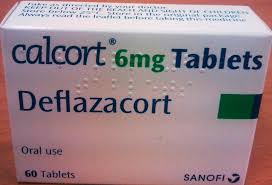by Gabriel Levitt, President, PharmacyChecker.com and Prescription Justice | Dec 29, 2017 | Drug Importation

Words matter when it comes to drug importation
As we close out 2017, personal drug importation via online pharmacies remains a viable lifeline for American patients who can’t afford prices at their local pharmacies. Recent FDA actions against pharmacy storefront offices in Florida, ones that help Americans buy more affordable meds internationally, are troubling. On a positive note, a backlash against that crackdown by members of Congress, including Senators Bill Nelson (D-FL), Chuck Grassley (R-IW), and Amy Klobuchar (D-MN) has begun and will certainly grow. But what’s most on my mind is the FDA’s vocabulary about drug importation and how people tend to confuse certain terms.
In its efforts against personal drug importation, the FDA tells the public that it’s protecting them from misbranded and unapproved drugs. Those designations sound scary and who would want such drugs? Well, Americans would. The fact is, whatever the FDA wants to call them, if medications are lawfully-produced under Good Manufacturing Practices, properly dispensed by a licensed professional and shipped by mail order, Americans are interested.
Oh, and these drugs are a hell of a lot cheaper.
Despite the clear advantages, these medications deemed to be misbranded or unapproved under U.S. law can be refused import by the FDA even if they are equally as safe and effective or the exact same as the medications sold in the U.S.
Here’s why… (more…)
Tagged with: adulterated, counterfeit, deflazacort, emflaza, FDA, marathon, misbranded, unapproved
by Gabriel Levitt, President, PharmacyChecker.com and Prescription Justice | Feb 22, 2017 | Advocacy, Drug Importation, Drug Prices, Pharmaceutical Industry
 Since Americans started importing medications for personal use in larger numbers at the beginning of the last decade, the Pharmaceutical Researchers and Manufacturers of America (PhRMA), Big Pharma, has engaged in media and government relations scare tactics to try and stop them. Apparently, when it comes to foreign versions of the new FDA-Approved Emflaza, which treats Duchenne Muscular Dystrophy, one board member of PhRMA supports importation!
Since Americans started importing medications for personal use in larger numbers at the beginning of the last decade, the Pharmaceutical Researchers and Manufacturers of America (PhRMA), Big Pharma, has engaged in media and government relations scare tactics to try and stop them. Apparently, when it comes to foreign versions of the new FDA-Approved Emflaza, which treats Duchenne Muscular Dystrophy, one board member of PhRMA supports importation!
Last week, I wrote about the decision of drug company Marathon Pharmaceuticals to postpone selling Emflaza over pricing concerns and how the issue shines a bright light on the benefits of personal drug importation. To summarize: some folks are outraged because Emflaza (deflazacort) was launched at a price of $89,000 for a one year supply. This seems insane when foreign versions of deflazacort, which cost 1% that amount (less than $1000), are already imported for personal use.
PhRMA is trying to distance itself from Marathon, just like it did with Martin Shkreli, former CEO of Turning Pharmaceuticals, when the price of Daraprim jumped from $13.50 to $750 a pill overnight. The CEO of Marathon, Jeff Aronin, however, sits on PhRMA’s Board of Directors! Last week, John Carroll of Endpoints News predicted last week that Aronin might be dropped. As of today, he’s still there.
Mr. Aronin wrote a letter to the Duchenne community that fully acknowledged American kids were already being treated with an unapproved foreign version of deflazacort. In his words: “As we all know, deflazacort was being used without FDA approval — and without ever having been approved anywhere in the world for Duchenne — by a very small group of patients (roughly 7 to 9 percent) in the Duchenne community who imported it from overseas.”
But does he support it? I mean, after all, the “score” for Marathon is that once it’s available for sale in the U.S., it will be purchased here. At least for the time being, this PhRMA board member does support it and seems to have no concern whatsoever whether the foreign version is safe and effective, not should he, since, like other medications, it was approved for safety and efficacy elsewhere. In noting that Marathon will “pause our commercialization” of Emflaza,” maintain its Expanded Access Patient Assistance Program, Aronin also state: “Patients currently receiving deflazacort from other sources may continue to have that option.” Damn right.
Is it hypocritical of PhRMA to diss Marathon? After all, brand drug companies jacked prices 130 times the inflation rate in 2015. Forty-five million Americans didn’t fill a prescription in 2016 due to cost. PhRMA will continue its practice of legal bribery and unleash a new, shiny PR campaign about life sciences and innovation — to prevent legislative and regulatory reforms that would lower drug prices. It’s going to take an unpredictable, unexpected populist wave of American anger at drug companies to bring their house down. In the meantime, maybe the people will take a hint from one PhRMA board member and import unapproved and lower cost medications.
Tagged with: aronin, Big Pharma, deflazacort, emflaza, marathon, phrma
by Gabriel Levitt, President, PharmacyChecker.com and Prescription Justice | Feb 16, 2017 | Advocacy, Drug Importation, Drug Prices, FDA, Personal Drug Importation

Unapproved but safe and effective…
Personal drug importation works! This week, drug company Marathon announced it is postponing the launch of Emflaza, its recently FDA-approved version of an off-patent drug called deflazacort, in the face of heavy scrutiny by Senator Bernie Sanders and Congressman Elijah Cummings over its price tag – $89,000 a year. This drug, which treats Duchenne Muscular Dystrophy (DMD), is available under the brand name Calcort in the United Kingdom at about 99% less (about $750) than the current U.S. “postponed” price. Generic versions of deflazacort are also available internationally among verified online pharmacies at an annual price tag of about $650.
For some background on the disease and treatment: DMD is a “genetic disorder characterized by progressive muscle degeneration and weakness.” It mostly afflicts boys, with onset ranging from ages 3-5. It’s caused by the absence of a protein called dystrophin. For more, see the Muscular Dystrophy Association’s (MDA) website. According to the MDA, corticosteroids, including deflazacort, help slow the disease’s progression.
For a critique of the Emflaza price read Sanders and Cummings’ letter. No one could do better than that. Marathon CEO Jeff Aronin attempts to rationalize the price here but it almost reads like an apology. They argue that no consumer will deal with the $89,000 price tag because health insurers only charge a $20 co-pay and they have patient assistance programs to help the uninsured. It’s never that perfect, at all: people always slip through the cracks and we’re not forcing people to go without needed medication or go into bankruptcy to get it. Right?
So now a fist full of truth about this medication and safe online access to affordable medicines to shine a bright light on the lifeline that is personal drug importation… (more…)
Tagged with: deflazacort, emflaza, marathon





